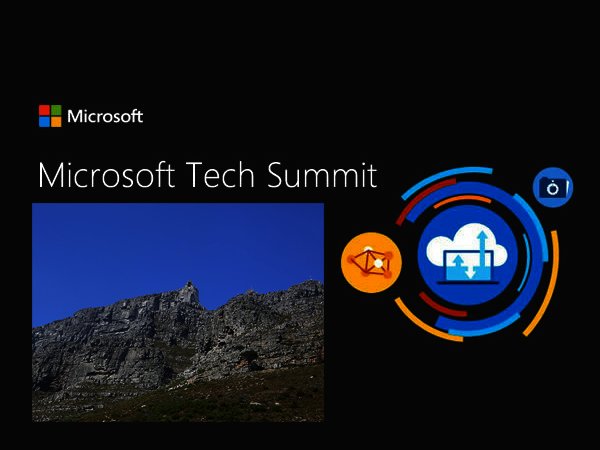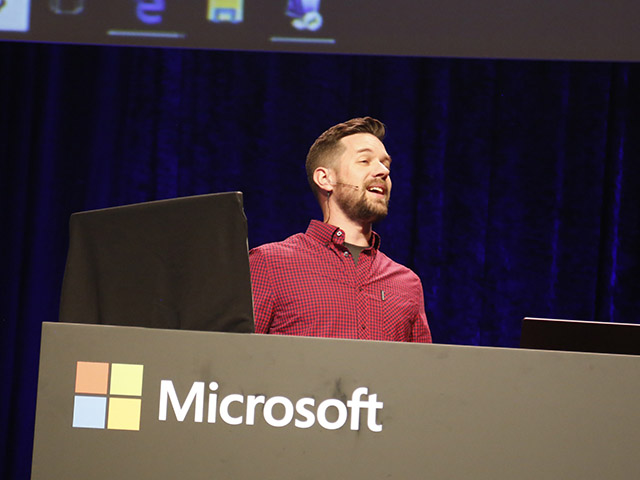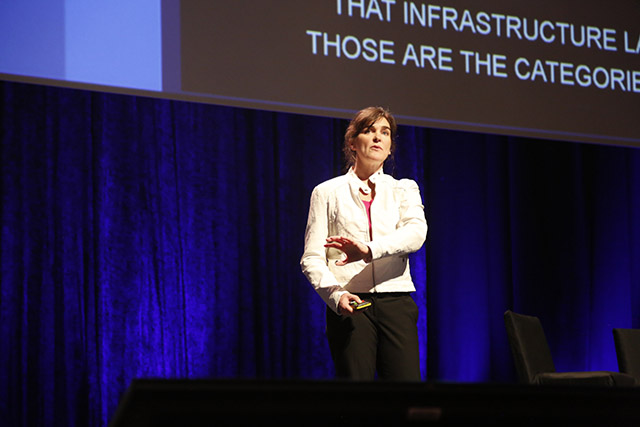Microsoft Tech Summit Part 5: The future is here
By Ryan Noik 22 February 2018 | Categories: Corporate Events
NEWS SPONSORED BY:
In the continuation of the exploration of Azure, the conversation at Microsoft’s recent Tech Summit turned to the third and fourth pillars of the company’s approach to the cloud, that of artificial intelligence (AI) and the essential pillar that is trust.
Victoria Grady, the general manager of Microsoft Azure noted that AI, once the domain of science fiction, was truly here and happening now.
Even as AI was a hot topic, she stressed that being able create AI application should not be limited to those with multiple PhDs and a deep knowledge of machine learning.
AI for all
“We want to democratise AI and bring it out to developers,” she enthused. To this end, the Azure cloud offers application programming interfaces (APIs), for facial recognition, sentiment analysis and language translation that developers can utilise immediately. They can then bringing them into their apps so as to leverage a more intelligent application experience for their customers.
Hearing the potentials of AI is one thing, but it is only really after seeing it in action that those potentials come alive. Thus, Ben Walters, the senior product marketing manager, Microsoft, demonstrated how a chatbot that incorporates the aforementioned features could more effectively be used to garner insurance for one’s car. First, he used a photo of his face to perform identity verification. Using sentiment analysis, the chatbot was able to analyse the expression on his face and frame its responses in kind. Then, as Walters switched between Spanish and English, the chatbot adjusted its language to answer accordingly.
All this made interacting with the chatbot more akin to speaking to a empathic human being, which was quite impressive. Walters pointed out that by building an AI enabled chatbot, there were a few benefits that companies could take advantage of. The first of these is that they would have a connection with their customer 24 hours a day, seven days a week at no additional cost. Additionally, this could free up their sales staff to address the more complex concerns that could not be handled by a chatbot alone.

Ben Walters, senior product marketing manager, Microsoft
To trust or not to trust, that is the question
Grady then addressed the final pillar in Microsoft’s approach to the cloud, that of trust. She acknowledged that in order for a company to actually move its workloads and data to the cloud, being able to trust that their data was in good hands was imperative.
As well, companies need to be assured that the cloud they are migrating to is reliable, and that their cloud provider could offer the regulatory compliance the likes of the Protection of Personal Information (PoPI) act in South Africa and the General Data Protection Regulation (GDPR) in the EU are now demanding.
It is for these reasons, she explained, that Microsoft has taken a different approach to its competitors, with a distributed model for its datacenters.
“We have twice the hyperscale datacentres as our competitors combined, because we see the explosion of data coming, and our customers tell us they want to have options and data proximity,” she elaborated.
Beyond being able to address local data residency issues – some countries are not happy for certain information to reside beyond their borders – Grady noted that having multiple datacenters in a region has another benefit.
“When a cloud provider can have multiple datacentres paired in a geography or region it enables them to reliably serve up a company’s data even in case of disaster,” she elaborated.

Victoria Grady, GM, Microsoft Azure
Security first and last
Although it is a complex topic in its own right, and one that is becoming increasingly critical to businesses and IT environments alike, Grady touched on the issue of security. She pointed out that nation threat attacks are difficult for any organisation to keep up with, which is exacerbated by the struggle to find the right security expertise within our organisations to keep ahead of these threats.
Grady elaborated that these are no longer hackers in a back room, but rather professional organisations trying to attack companies, and in some cases, countries, and proactively breach their cybersecurity.
“Microsoft has an advantage here that we want to bring to organisations to help them build their your own trusted environment as they move to the cloud. To this end, we have invested more than one billion dollars in the security space,” she added.
Just one example of a solution that is particularly focused on addressing security issues in the cloud is Azure Security Centre. This, explained Grady, enables customers to be more than preventative, it further offers counsel on how to create a uniquely secure environment. Furthermore, because in today’s security environment, being compromised has become less a matter of ‘if’, and more a case of ‘when’, Security Centre assists in the event of a security breach to be as reactive as possible to contain the breach before harm is done.
With that, the drilldown into Microsoft Azure was complete. And yet, two of the more essential explorations, the role security and skills play in digital transformation still lay ahead.
You can catch up on parts 1 - 4 at their links below
Part 1: Are you ready for a Transformation?
Part 2: Thriving in a Digital World
Most Read Articles

Have Your Say
What new tech or developments are you most anticipating this year?



.jpg)
